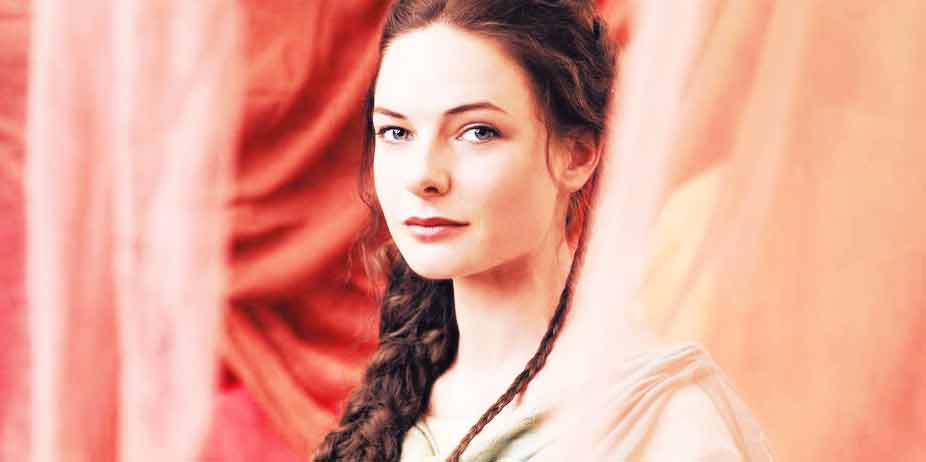 The
Red Tent (2014)
The
Red Tent (2014)
I sometimes wonder what goes through the minds of television and film executives minds when deciding to adapt a Bible story for a modern audience. Often, Jews and Christians are the largest potential audience and source of revenue, yet many recent productions either alter Biblical history enough to offend these two groups or include problematic sexual content. The Red Tent does both, following in the trend of the best-selling novel by the same name, but also altering events from the novel.
The first time young Jacob sees Rachel at the well, he kisses her -- and from that moment on, his fate shifts in a way neither of them could have ever imagined. She is intimidated a year later on their wedding night and convinces her older sister, Leah, to take her place in the marital bed. Though amiable to this substitution, for he is fond of Leah as well, Jacob still wants Rachel ... and purchases her, along with her two other sisters, for his own. Many years later, the "sister wives" are mistresses of the Red Tent, a sacred place where the women spend time during their menstrual cycle and when they give birth. In time, Dinah (Rebecca Ferguson) is born to Leah (Minnie Driver), and becomes a favorite of her father Jacob (Ian Glenn), alongside his one son by Rachel (Morena Baccarin) ... a boy with prophetic dreams named Joseph (Will Tudor).
The living condition with his father in law has become unbearable, prompting Jacob to move home ... and face his brother Esau with trepidation. This enormous change in environment introduces Dinah to young love, tragedy, and a series of unforgettable events that only resemble the Biblical account in vague terms. The changes are numerous and might disconcert its primary audience due to the nature of them and how they alter the men and situations of the Bible; the women of this story are pagans, who worship a series of fertility goddesses -- there is no indication that Dinah or the other children were ever taught anything about Jacob's God. The theme of motherhood / goddess / female strength is told and retold through the symbolism of the story and her role as a midwife.
Jacob now knows Leah was under the veil all along; it was not her father's intention to trick him, but him seizing an opportunity to act. Dinah's rapist is now her lover, transforming her brothers into murderers. Themes of ownership, of dominance, and of cruelty at the hands of men run throughout; many of the the women are empathetic and strong-willed, and the heroine is a modern one ("I will marry the man I choose," she says firmly, before undressing for the Prince). The subtle undercurrent is one of anti-men in favor of strong women, and it doesn't always reflect well on Jacob or his sons. (Though, to be fair, there is an evil female figure as well in the Prince's mother.)
I'm torn on my opinion of this film; as a stand alone film it's quite good and has strong thematic elements. It is a reasonable translation of many of the Biblical events, but I was offended by the strong sexual content periodically throughout, containing graphic scenes I wouldn't have expected on basic cable. I can't recommend it for that reason.
Sexual Content:
Three graphic sex scenes containing movement, partial nudity,
and implications of fingering and oral sex; men undress their wives.
Dinah engages in premarital sex. Joseph is stripped naked and
brutalized by his brothers (backside nudity is seen several
times).
Violence:
Men stab and slash one another, with spurting blood. The
brothers brand Joseph with an iron, scarring his arm, and flog
him while he's naked. Various birthing scenes.
Other:
Heavily neo-pagan elements including the worship of fertility
goddesses by Jacob's wives.
